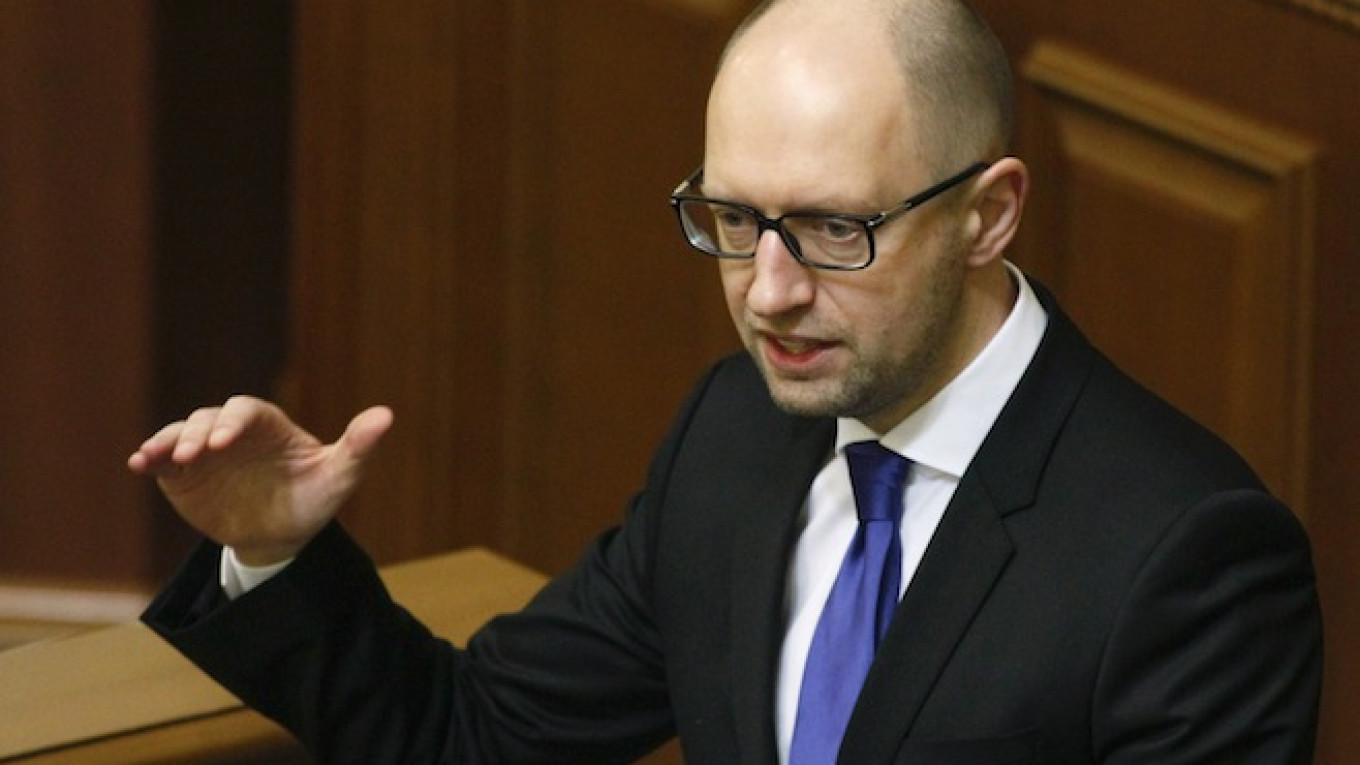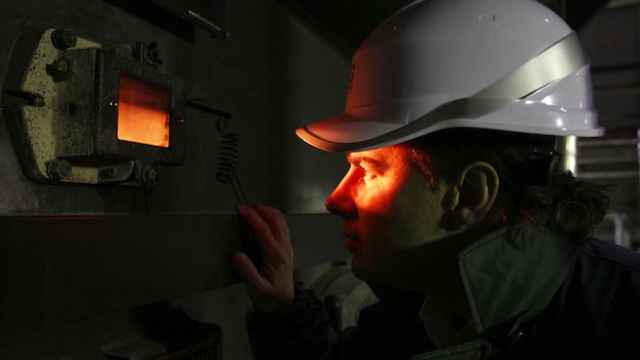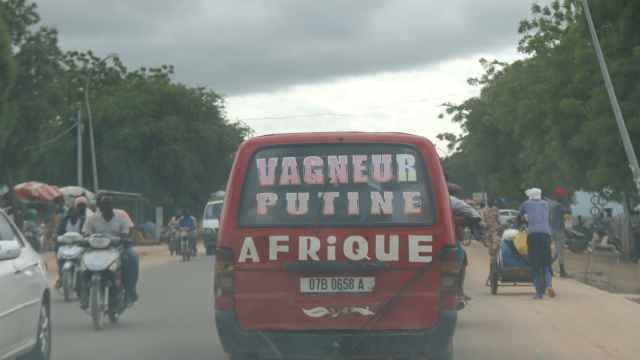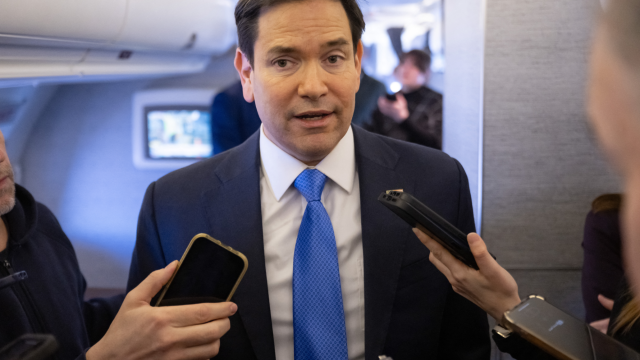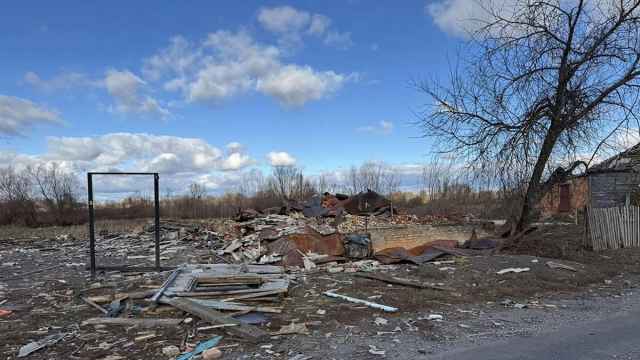Ukraine risks defaulting on its debt unless Western donors come up with more funds on top of the billions of dollars of financial aid already promised, Prime Minister Arseniy Yatsenyuk said on Thursday.
A year of revolution and war with pro-Russian separatists has pushed Ukraine's hryvnia currency to record lows and crippled the economy, which was already near bankruptcy after years of corruption and economic mismanagement.
Parliament on Thursday approved the new government's economic program of tough reforms aimed at securing the $27 billion so far promised by Western backers including the International Monetary Fund and the World Bank.
But Yatsenyuk said international lenders needed to put more money on the table.
"In order to survive, in order to prevent a default, we need an international donor conference, the adoption of a Ukrainian recovery plan at this conference and the help of our Western partners," Yatsenyuk told parliament.
He specifically referred to a Financial Times report that the IMF, visiting Kiev this week for talks on its existing $17 billion bailout package, had identified a $15 billion shortfall in the program.
"Next year, in addition to this program provided by the IMF — and we didn't say this, the FT said this — $15 billion is needed," Yatseniuk said.
Parliament, dominated by parties favoring policies to move the country towards the European mainstream and away from Russia, voted in favour of the government's action program. The reforms include overhauling the tax system, raising energy tariffs and privatizing state firms.
The main opposition party criticised the austerity measures as too harsh. "The program was written under dictation from the IMF. It represents a path towards the impoverishment of our people," said Yury Boiko, head of the faction Opposition Bloc.
The austerity drive, which also includes cuts in social benefits, will be deeply unpopular as many Ukrainians face a winter in poverty, with prices rising sharply and the currency expected to weaken further.
Ukraine has so far received two tranches under the IMF program, worth a total of $4.6 billion. But its foreign currency reserves have more than halved since the start of the year due to gas debt repayments to Russia and efforts to support the struggling hryvnia.
The economy has been additionally burdened by the cost of the war in the east of the country with pro-Russian rebels. The conflict has closed steel plants and coal mines and destroyed infrastructure in Luhansk and Donetsk, regions that together once accounted for a sixth of gross domestic product and a quarter of industrial output.
Three more Ukrainian soldiers were killed in separatist attacks in the past 24 hours, the Kiev military said, further clouding prospects for a resumption of peace talks. More than 4,300 people have been killed overall in eight months of conflict.
A Message from The Moscow Times:
Dear readers,
We are facing unprecedented challenges. Russia's Prosecutor General's Office has designated The Moscow Times as an "undesirable" organization, criminalizing our work and putting our staff at risk of prosecution. This follows our earlier unjust labeling as a "foreign agent."
These actions are direct attempts to silence independent journalism in Russia. The authorities claim our work "discredits the decisions of the Russian leadership." We see things differently: we strive to provide accurate, unbiased reporting on Russia.
We, the journalists of The Moscow Times, refuse to be silenced. But to continue our work, we need your help.
Your support, no matter how small, makes a world of difference. If you can, please support us monthly starting from just $2. It's quick to set up, and every contribution makes a significant impact.
By supporting The Moscow Times, you're defending open, independent journalism in the face of repression. Thank you for standing with us.
Remind me later.


